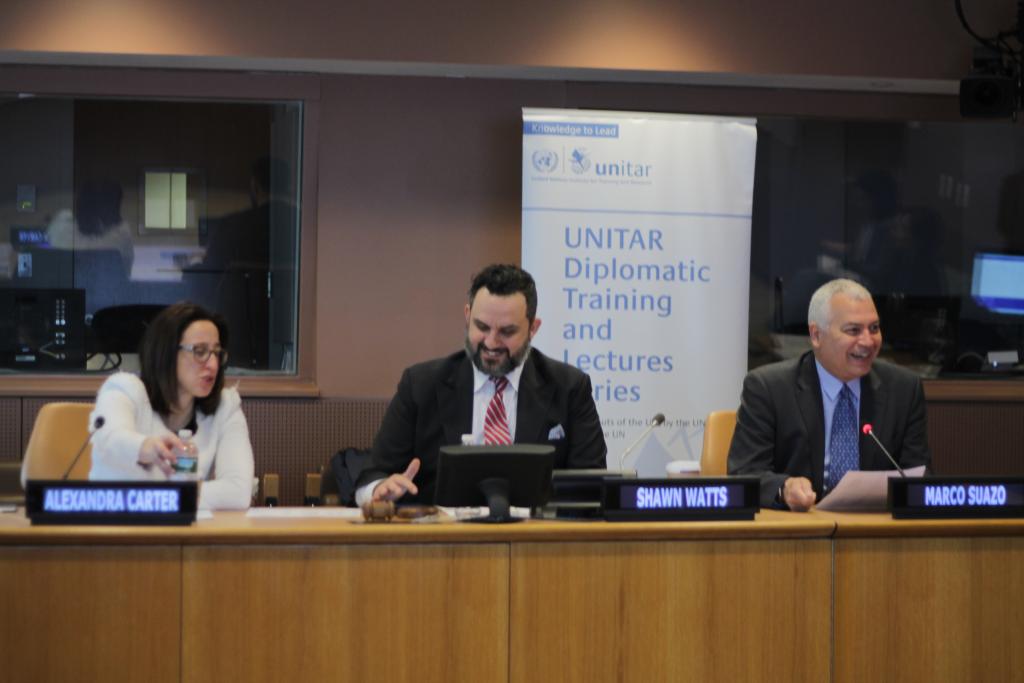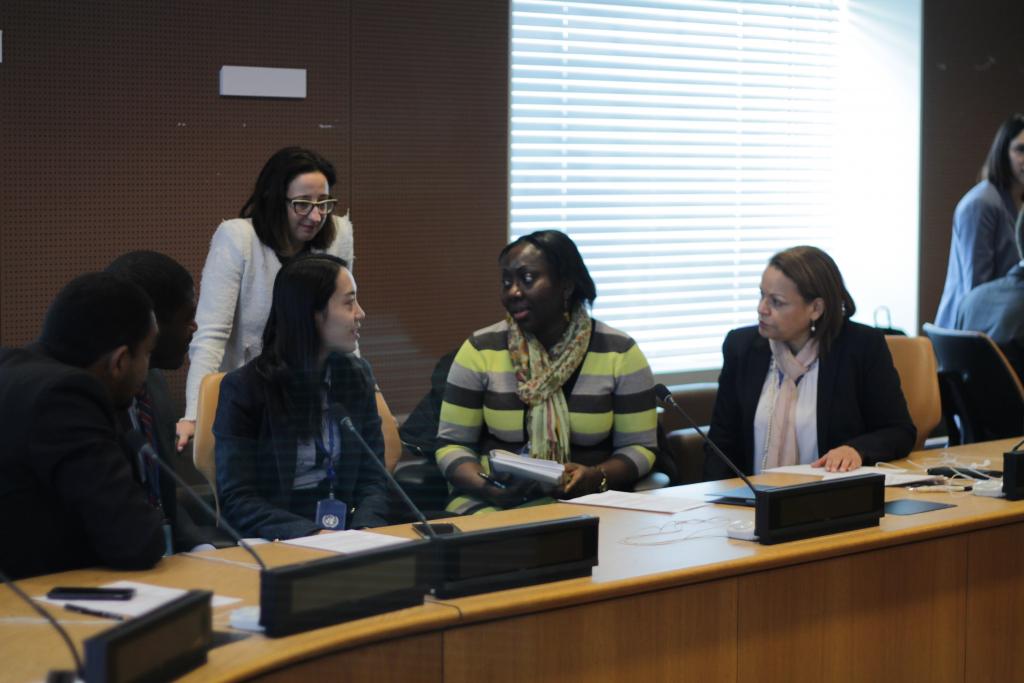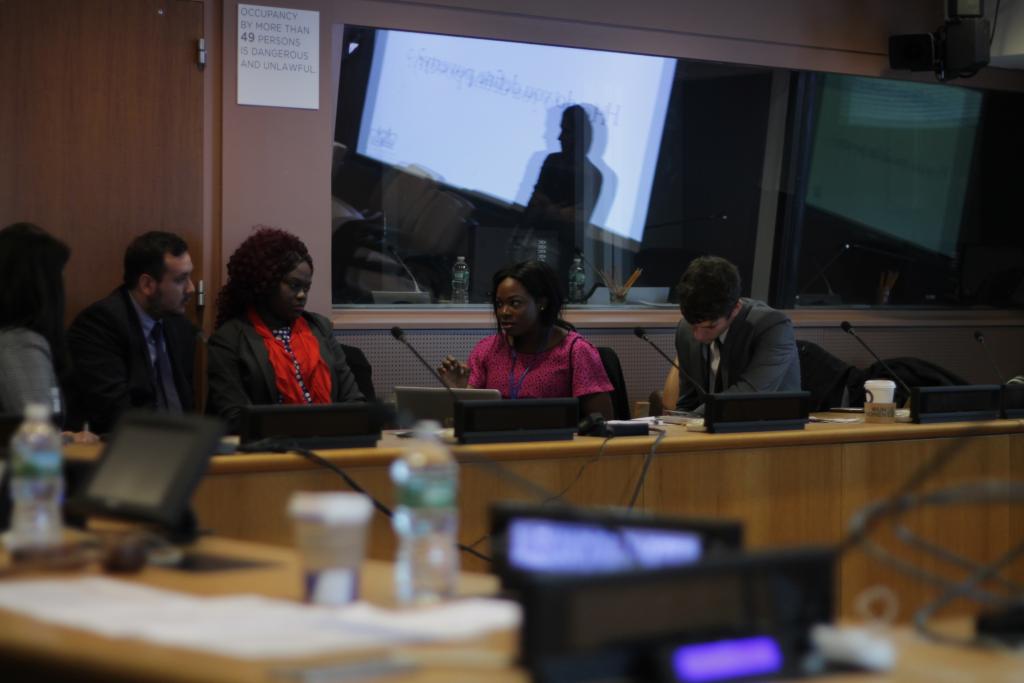UNITAR Delivers Course on Conflict Resolution as a Tool Against Poverty
 24 March 2017, New York, USA - The United Nations Institute for Training and Research (UNITAR) organized a workshop titled “Conflict Resolution as a Weapon Against Poverty” taught by two Columbia Law School Professors. The workshop began with a few opening remarks by Mr. Marco Suazo who thanked Professor Alex Carter and Professor Shawn Watts for all their hard work in preparation for the workshop. He gave participants a brief summary of what to expect from the workshop.
24 March 2017, New York, USA - The United Nations Institute for Training and Research (UNITAR) organized a workshop titled “Conflict Resolution as a Weapon Against Poverty” taught by two Columbia Law School Professors. The workshop began with a few opening remarks by Mr. Marco Suazo who thanked Professor Alex Carter and Professor Shawn Watts for all their hard work in preparation for the workshop. He gave participants a brief summary of what to expect from the workshop.
The core of this training contemplated any relationship between modes and outcomes of international conflict resolution and poverty (SDG 1.1, 1.2). Participants were divided into groups and quested whether there is a consistent correlation between international peace and higher standards of living. Also, if nations that are less plagued by war and other international discord are more likely to experience low poverty rates; and if so, to what extent? During the course, delegates explored several research cases that examined the links between peace and low poverty rates.
In discussing the types of conflict resolution that a nation may employ, the professors recognized that mediation is not always the best cho ice; and critically examined multiple conflict resolution methods and explored the different ways that each method may alleviate poverty. First, a general overview of the different methods of conflict resolution was provided (e.g., going to court and getting a judgment, mediation, arbitration). Then, we all compared and contrasted the different methods—what are the advantages and disadvantages of each? When is the most appropriate time to use a particular method? A series of exercises and critical discussions were conducted to deepen our understanding of the issues at hand.
ice; and critically examined multiple conflict resolution methods and explored the different ways that each method may alleviate poverty. First, a general overview of the different methods of conflict resolution was provided (e.g., going to court and getting a judgment, mediation, arbitration). Then, we all compared and contrasted the different methods—what are the advantages and disadvantages of each? When is the most appropriate time to use a particular method? A series of exercises and critical discussions were conducted to deepen our understanding of the issues at hand.
During the afternoon session there was a roleplay exercise that made participants experience firsthand some of the ways we can resolve conflict. In this section, professors joined the theoretical discussion with the practice of conflict resolution. Afterward the roleplay, there was a debrief and review of the different processes and outcomes of the exercise.
 By the end of this session participants understood different methods of conflict resolution and the advantages and disadvantages of each method. The also understood how fair and inclusive conflict resolution methods can help alleviate poverty. And last but not least, they identified appropriate methods of conflict resolution in real-world contexts.
By the end of this session participants understood different methods of conflict resolution and the advantages and disadvantages of each method. The also understood how fair and inclusive conflict resolution methods can help alleviate poverty. And last but not least, they identified appropriate methods of conflict resolution in real-world contexts.
Photos: Professors and participants

